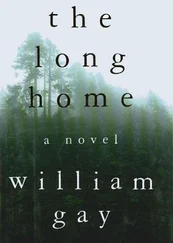William Shaw - She's leaving home
Здесь есть возможность читать онлайн «William Shaw - She's leaving home» весь текст электронной книги совершенно бесплатно (целиком полную версию без сокращений). В некоторых случаях можно слушать аудио, скачать через торрент в формате fb2 и присутствует краткое содержание. Год выпуска: 2014, Издательство: Little, Brown and Company, Жанр: Полицейский детектив, на английском языке. Описание произведения, (предисловие) а так же отзывы посетителей доступны на портале библиотеки ЛибКат.
- Название:She's leaving home
- Автор:
- Издательство:Little, Brown and Company
- Жанр:
- Год:2014
- ISBN:нет данных
- Рейтинг книги:4 / 5. Голосов: 1
-
Избранное:Добавить в избранное
- Отзывы:
-
Ваша оценка:
- 80
- 1
- 2
- 3
- 4
- 5
She's leaving home: краткое содержание, описание и аннотация
Предлагаем к чтению аннотацию, описание, краткое содержание или предисловие (зависит от того, что написал сам автор книги «She's leaving home»). Если вы не нашли необходимую информацию о книге — напишите в комментариях, мы постараемся отыскать её.
She's leaving home — читать онлайн бесплатно полную книгу (весь текст) целиком
Ниже представлен текст книги, разбитый по страницам. Система сохранения места последней прочитанной страницы, позволяет с удобством читать онлайн бесплатно книгу «She's leaving home», без необходимости каждый раз заново искать на чём Вы остановились. Поставьте закладку, и сможете в любой момент перейти на страницу, на которой закончили чтение.
Интервал:
Закладка:
Breen put his hands in his mac pockets. “So…you told your new neighbors to go back to Jamaica and they told you they were Africans?”
“I beg your pardon?” said Miss Shankley, lifting her chin a little higher.
“Nothing. I think that’s all for now,” he said, standing.
“It was just a neighborly conversation, that’s all,” said Miss Shankley.
“But they’re new in the area and you think that they’ve got something to do with the dead girl?”
“I didn’t say anything of the kind, officer,” she said, mouth hard and small. “I just thought you should know that there were people who were not from round here who had recently moved in.”
“And we’re grateful for you being so observant,” the constable butted in.
The woman sat on her plastic-covered armchair, pouting.
“Did the constable here ask if you heard anything out of the ordinary last night?” said Breen, pausing in the hallway.
“I asked her all your questions, sir. She says the rubbish has been like that for weeks. And she sleeps with earplugs in.”
“I have nothing against Africans,” said Miss Shankley. “But they have the whole of Africa to live in.”
“Just one more question. What time do you get up in the morning?”
“Around six. I listen to the radio.”
“Do you remember if you looked out of the window?”
“Probably.”
“There’s a mattress down there. It’s orange.”
Breen pointed out of the window. Miss Shankley got up and stood beside him. The mattress was still leaning against the wall where the police had propped it when they uncovered the woman’s body. “Do you remember seeing where that was when you got up this morning?”
“Why would I notice a thing like that? You know,” said Miss Shankley, “I saw you being sick in the bushes down there, Sergeant. I noticed that, clearly enough. I’d have thought you’d have got used to it by now.” Then to the copper, “Is he all right? He’s still looking a bit peaky if you ask me.”
“I think we’re done, Constable,” said Breen.
“I’m a woman on my own. I find all this very disturbing.” She led them to the front door and as she held it open for them she said to the other policeman, “Rivers of blood, you know.”
“What?” said the copper.
“Immigrants,” said the woman. “What Mr. Powell said. They don’t have any place here. You wait. What if there were as many niggers in the country as bloody Irish? They let a thousand Pakis in the other day. Think about it. It’s going to be trouble. You’ll see.”
On the walkway outside, the copper said, “Mind you, I think she’s got a point. We all do.”
“What?” said Breen.
“You know. All the coons coming over. People don’t like it. Not just Enoch Powell. They’re taking our jobs. And they’re bringing crime with them. They’re taking over all the knocking shops too. And selling drugs.”
He strode on ahead down the walkway, then stopped and turned, waiting for Breen to catch up.
“My father was an immigrant,” said Breen.
“Yeah, but he definitely wasn’t a coon, sir.”
Breen started up the stairs to speak to Mr. Rider at number 31, the man who had told Miss Shankley that the dead girl was a prostitute, but there was no answer. The neighbor’s front door opened and an old woman peered out and said, “He’s not in.”
“We going to knock on the darkie’s door now?” said the constable.
When they went to try the door of the white house behind the sheds, no one was in there either.
“We could break in?” suggested the copper.
“We could,” said Breen. “If this was Z-Cars .”
“Just an idea.”
Breen squatted down and pushed back the black painted letter flap to peer into the house but there was a letter box on the other side, blocking the view.
Back inside the police car, Breen wound down the passenger window and watched the policemen, standing awkwardly in doorways as they talked to the residents, slowly working their way down the street.
Four
West London was full of color. Each year the colors got louder. Girls in green leather miniskirts, boys in paisley shirts and white loafers. New boutiques selling orange plastic chairs from Denmark. Brash billboards with sexy girls in blue bikinis fighting the inch war. A glimpse of a front room in a Georgian house where patterned wallpaper had been overpainted in yellow and a huge red paper lampshade hung from the ceiling. Pale blue Triumphs and bright red Minis parked in the streets.
Around Clerkenwell the color faded. The old monochromes of postwar London returned. Still flat-capped and gray, East London continued about its business.
The bus back to Stoke Newington was crowded and fractious. He stood downstairs, hanging on to the strap until the bus emptied out at Angel. For the rest of the journey he sat next to a young woman who was crammed into a seat surrounded by shopping bags full of new clothes. She was pretty in a Bardot-ish way. He found himself looking at her reflection in the glass of the bus window. On the other side of the glass, the orange streetlights were bleary in the wetness.
He lived in a cul-de-sac behind the police station where he had worked before he took the job with D Division. Basement flat.
There had been no chance yet to put away his father’s things. A carton of bandages still sat on the dresser and his walking frame was still by the door. On the telephone table a pile of the notes he had left for the women he had paid to look after his father while he was at work. The nurse’s folded zed bed, tucked into the corner of the room. A tangle of wires from a single socket powered the radio-gram, two standard lamps, the electric clock and the television.
His father had stayed here for the last six years of his life but had never liked it. He had lived on his own in Fulham until the day he had forgotten about a pan of sausages and set fire to the kitchen of his flat. Breen had had to move out of the police section house on Mare Street to rent this place. It had a spare bedroom that his father could use until he was well enough to move back on his own. That had never happened.
It seemed too early to start moving his father’s belongings. They still cluttered the flat: his photographs and books, his records by Italian tenors, his poetry and his novels and his collection of walking sticks, even the leather armchair Breen was sitting in now.
Normally Breen enjoyed cooking for himself. From the age of ten or eleven he had taken over cooking the meals for himself and his father. Tonight, though, he just heated a can of beans. He went to cut a slice of bread to go with it, but the loaf in the bread bin was sprouting gray mold.
He ate the beans on their own in front of Olympic Grandstand . He was watching a girl from the USSR who was doing floor exercises to some thumping piano music-she was beautiful in a scary, Soviet kind of way-when the electricity clicked off. The light on the television shrank to a small line, then a single dot, then disappeared into blackness.
Breen sat there a minute, eyes adjusted to the darkness. The sounds of the street seemed louder now. When his eyes began to make out dull shapes, he stood and felt around for the electric meter by the front door. He usually left a pile of half crowns on top but they were all gone. He dug one out of his pocket, fed it into the slot and turned the handle. The television came back to life, blaring a national anthem he didn’t recognize.
After he’d washed the plate and put it on the rack he smoked his fifth and last cigarette, then dressed in his pajamas and went to bed, worn thin by the day.
He sat in bed looking through his police notebooks, one for the dead man, the other for the dead girl. He hadn’t even begun to write his report about what had happened to Prosser last night. He fell asleep trying to remember what he had meant when he had written “Ask about the doors.”
Читать дальшеИнтервал:
Закладка:
Похожие книги на «She's leaving home»
Представляем Вашему вниманию похожие книги на «She's leaving home» списком для выбора. Мы отобрали схожую по названию и смыслу литературу в надежде предоставить читателям больше вариантов отыскать новые, интересные, ещё непрочитанные произведения.
Обсуждение, отзывы о книге «She's leaving home» и просто собственные мнения читателей. Оставьте ваши комментарии, напишите, что Вы думаете о произведении, его смысле или главных героях. Укажите что конкретно понравилось, а что нет, и почему Вы так считаете.












